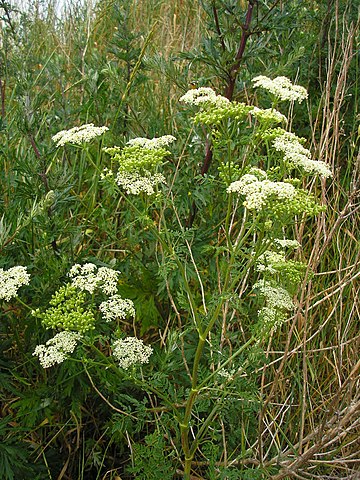Poison hemlock, (Conium maculatum), commonly just called hemlock, is most certainly not a medicinal plant. It is, however, famous from Ancient Greece, where it was used as a form of capital punishment, the most notable of its victims being the philosopher Socrates who was convicted of corrupting the youth of Athens.
All parts of the plant are toxic and care needs to be taken due to its resemblance to other plants such as the wild carrot, Queen Anne’s Lace. The toxicity of hemlock is due to the presence of certain alkaloids such as coniine, N-methylconiine, conhydrine, pseudoconhydrine and γ-coniceine which act on the central nervous system. After consumption of any part of the plant, severe symptoms can develop including a slowing of the heartbeat, a lowering of blood pressure, muscle paralysis, kidney failure and death. There is no known antidote.

